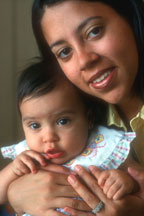
Paternity and Father's Rights
A lot of my clientele ask me about paternity, especially if they suspect that they are the father of a child.
The rules regarding paternity are complex and important to understand because they have serious consequences as to your obligation to pay child support and your right to custody or visitation once you are declared the legal parent of a child.
A person has standing to ask the Court to acknowledge or disavow their paternity by seeking an Order of Filiation if the child was not born during a marriage, there is no order of filiation, and no Acknowledgement of paternity. Under these circumstances the person who guesses he is the Father has an absolute right to blood testing and a hearing where he alleges that the parties engaged in intercourse during the relative period of conception.
If all showings in petitions are adequate then the Support Magistrate should order blood or DNA tests of all parties and the child and adjourn the case to another date. When the parties return to court, the test results should be explained by the Court. The blood or DNA tests may exclude or include both competing fathers as the man as the biological father or may show how probable it is that he is the father.
After step one is completed, there must be a best interests analysis to be determined through a hearing in NY Family Court. All parties must be represented, including the mother, and all interested potential fathers. Also the child should be appointed an attorney. This is true especially where the child has a relationship to one or both of the potential fathers.
There are other more complex facts that would allow a person to seek paternity, such as when a person was led to believe they are not the Father and the alleged father relied on these false allegations to his detriment. This is called equitable estoppel and it is up to the court tin this instance to decide whether the legal father should forgo his rights in the best interests of the child.
Once you are determined to be the legal Father then the Mother may sue for child support and you may sue for custody or visitation.



